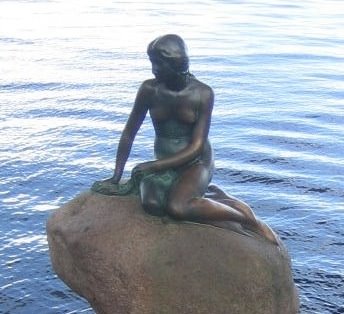A few months ago the women of Buduburam went on strike. (Not all of them, certainly, but a significant amount to disrupt life on camp.) Somehow the UNHCR had agreed to extend voluntary repatriation one year and increase the cash attachment to $100 from $5. But these women, these mothers, wanted more—and who wouldn't want more, who wouldn't want to provide the best, ensure the safest future for one's children. Thus they took to the football field with demands for either resettlement or $1000 for repatriation.
A few weeks ago, Ghanaian police came into the camp and arrested hundreds of women and brought them to an undisclosed location. A few days later they came in and arrested some men as well. The UNHCR negotiated the return of many of the arrested refugees to camp, but some were deported back to Liberia without due process.
If this had to happen, I'm glad that it happened while I was in Canada, visiting my fellow volunteers, because it forced the issue to resonate with me, it forced me to care more, it made it so that I couldn't hide from the terrible reality of what has happened.
It's a clash, no, a convergence, of my recent academic studies of protest and (especially) mothering and my experience in Buduburam.
Of course, it's hard to get the facts straight about what happened. It was hard when I was there, and it's even farther from afar. The international news sources, the American news sources, they don't give a damn. While I wouldn't want what's recently happened at Buduburam to be blown out of proportion, the fact that there's not a single mention in even a tiny little hidden corner of the New York Times upsets me. Because this absence makes me realize just how much bad stuff happens all over the world that we would never, could never, know about, even if we tried.
There's a difference between the facts I read on the petition and those cited in the PCO report I was recently emailed. But the truth doesn't depend upon the facts and the details. In both accounts, peaceful protesters (and even non-protesters?) were arrested, and some were even deported despite their legal refugee status.
Liberian/Ghanaian relations around camp are, I would guess, at an all time low. The protesting women said they didn't want to be integrated into Ghanaian society, and I can understand why. They want to preserve their culture and identity, and if they can't they want to give their children what they believe is the best possible opportunity for them.
So chaos may not reign. Life may go back to normal. But according to the PCO report, the camp will close in 2009. Who knows what will happen to the Liberians who remain in Ghana, but it doesn't look good. Regardless, I admire the women of Buduburam, who took action—disruptive action—on an issue that intimately effected them. Their demands may be impossible and unreasonable, but their agency is admirable.
 I realize the lack of explanation in this post of the events that recently transpired on camp. But from this distance I feel inadequately prepared to cover them. I can write about what I experienced and discovered when I was there. But for account of what has happened regarding the protests and arrests and deportations, I suggest you read the petition, and I hope you sign it. Its demands are mild but important. This situation must be resolved, and the UNHCR needs to do a better job mediating and meeting needs. In order to effectively resolve the situation (immediately and in the long run), the voices of these women must be heard. Their concerns, needs, and demands must be a part of any proposed solution if it is to work.
I realize the lack of explanation in this post of the events that recently transpired on camp. But from this distance I feel inadequately prepared to cover them. I can write about what I experienced and discovered when I was there. But for account of what has happened regarding the protests and arrests and deportations, I suggest you read the petition, and I hope you sign it. Its demands are mild but important. This situation must be resolved, and the UNHCR needs to do a better job mediating and meeting needs. In order to effectively resolve the situation (immediately and in the long run), the voices of these women must be heard. Their concerns, needs, and demands must be a part of any proposed solution if it is to work.
